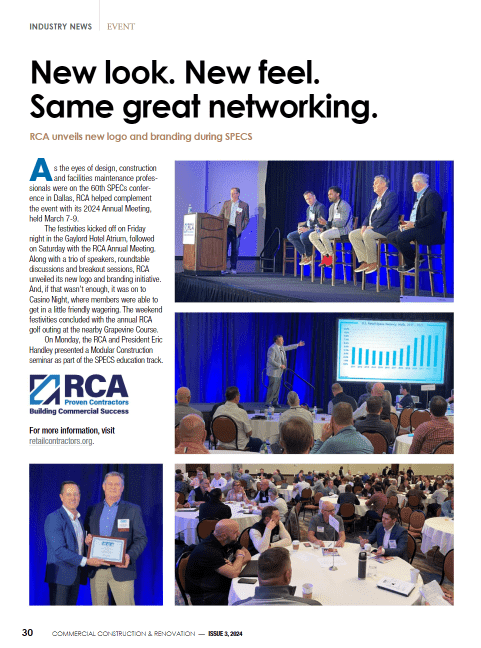For the past several years, the communication between architects and their clients has fundamentally transformed and has become a bit complicated. The core reason for this tendency is the evolving technologies and tools used to create different types of architectural and design projects. The scope of information that needs to be exchanged with the clients grows. In addition, if we talk about scalable architecture projects, this information has to be also shared and discussed with the stakeholders who basically take all vital decisions on the project.
Basically, communication in architecture is divided into two aspects—technical and social. From the one side, it is essential to provide clients with the technical details like workable building planning, design decisions, tools used for executing these schemes, etc. On the other hand, architects need to build trusting relations with clients that will eliminate the doubts about your solution on the project and will help explain the technical side in an easier way.
Further, we would like to take a closer look at the peculiarities of communication in architecture, and why it is important for clients as well as architects to be understood in the project vision. And also we will depict how to set the right approach to communication in architecture.
Importance of communication between architects and clients
To begin with, the architect plays a fundamental role in the project building, as its success depends on the correct building planning and visualization. The number of specialists that will work on your project depends on its scope. For instance, if it is your private housed building, then probably you will work with one architect, designer, and constructor. However, if it is an apartment building, then you probably will cooperate with a team of architects, like 3-4 people.
Nevertheless, the communication is usually held with the chief architect or learning specialist in the team to make it clear for the client and team as well. The architectural project is a combination of art and talent, technology and science. Along with the appealing interior design, it has to be built according to architectural rules and standards.
Due to the writing service Rated by Students, these days, clients are willing to be fully engaged in the project development process. It doesn’t matter whether the client is the main investor, or the client represents the stakeholders, architects have to be capable of making them aware of all changes on the project.
Additionally, it is vital to inform the client of the precise information about the building planning and design and to explain the decisions that were taken by architects. Of course, the architecture language is specific, and some terms can be inaccurate for stakeholders. So the architect is tasked with finding the methods to explain everything in a clear way.
Common communication problems and solutions between architects and clients
Hence, we collected the compilation of the common issues and concerns that may happen between clients and architects, and the workable solutions that will help avoid them or handle them as well.
Problems
- the architect does not consider the requirements and project vision of the client completely;
- the presenter of stakeholders (client) has not discussed the project concept properly with stakeholders;
- initial design requests were not considered due to the building type;
- the project and client requirements evolve during the project development;
- the client is poorly engaged in the development and provides no feedback on each stage.
Solutions:
- make sure the client and all stakeholders are aware of all changes on the project and take vital decisions, understanding their consequences for the final result;
- complete management of all project scope changes from the architect side, evaluating the timelines, specialists, and budget;
- provide clients with an accurate building visualization that is easy to understand for everyone.
How to set communication with clients for architects?
Now we would like to sum up the potential risks and their solutions and provide some tips on how to correctly arrange the communication between architectural agencies and clients.
Writing and verbal versions of the project
Verbal discussion of the project can be quite easy. The client and architect share the vision and purpose of the building, its design style, number of floors, rooms, and other details. IT sounds really clear. But when a project is transferred in the writing form using various architecture terms and indicators, it becomes really complicated to read for clients and stakeholders.
Writing communication skills are also essential in architecture. So, the written form has to be done by someone who is great at writing and can explain difficult terms in a simple way but still informative and including all project details. This task can be executed by someone from the architecture agency, or they can hire a writing service instead.
Document project goals, timelines, and tasks
The execution of an architectural project requires tight collaboration between the client and the architectural agency. Basically, the project is divided into three stages—architecture where the building is planned, construction where the materials are typed and counted, and design where the client can see the final result of the work.
Each of these stages has to be documented, including timelines of execution, goals, tasks, executors, hourly rates, overall cost, etc. A similar document needs to be provided for the entire project so that the team that works on it could see the project mission and expected results.
Discuss strict deadlines
As we mentioned above, the architectural project can change during its development. However, all these updates and decisions have a great impact on the results, deadlines, budget, and start of the actual building. Setting a strict deadline for each stage and the project overall creates a kind of border to the project scope changes. It helps provide only critical and really required adjustments, which also helps save the time and budget of the client. This point has to be vitally discussed at the beginning of the development, to avoid complaints and concerns from clients further.
Perceive the feedback from the client
The opinion and feedback of the client is the number one priority in communication in architecture. Indeed, clients are not professional architects, and some of their suggestions may be irrelevant according to their projects. However, it is essential to prove the suitability of the project due to the needs and expectations of the client.
Architects need to listen to everything the clients or stakeholders want to tell them and consider these thoughts and critics seriously. Custom writing service Top Writing Reviews recommends the goal of this cooperation is to build a project that will be approved by the client, not only by the team of architects.
To conclude
In communication in architecture, it is important to communicate in a way that you will be understood, and it is related to clients as well as architects. The requirements from clients need to be converted into architectural language and explained step-by-step to ensure both sides are on the same page.








 The 2024 virtual Men’s Round Table will be held Q4, 2024, date TBD.
The 2024 virtual Men’s Round Table will be held Q4, 2024, date TBD.











